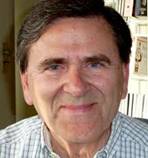The governance structure of the programme includes the following boards:
- Board of Directors
- Scientific Board
- External Supervisory Committee
The Board of Directors
Composed of representatives from each participating institution (EPFL, ISR/LARSYS, INESC-ID, Champalimaud Foundation and ISR-Coimbra), being chaired by the Program Director. The Board of Directors is responsible for the regular management of the program, progress monitoring and communicating with the FCT.
For the matters concerning the structure of the doctoral programmes (curricular structure, credit recognition, etc) of the degree granting institutions (IST/UTL, EPFL and U.Coimbra) the Board of Directors will consult the local Doctoral Program Coordinators of those institutions. The Board of Directors is responsible for the preparation of reports to be sent to FCT and to the External Supervisory Committee.
The Scientific Board
Composed by researchers of the participating institutions and structured according to main research areas that will be defined for each call, designated as Focus Area Coordinators. The Scientific Board is nominated by the Board of Directors, upon proposals from the participating institutions, and is chaired by the Program Director. The main responsibility of the Scientifc Board is to assist the Board of Directors to organize the Calls for Applications, organize the student selection process in communication with the structures in each academic institutions (e.g. the École Doctorale at EPFL) that ensure the appropriate admission and selection criteria are met; and work with the Associated Partners to organize the Colab activities (lab rotations, guest lecturers, etc).
For the occasion of the RBCog workshop, the Scientific Board will convene with all core researchers of the various institutions included in the RBCog Proposal and activities.
External Supervisory Committee
The PhD programme is monitored by an external supervisory committee that will provide yearly advisory reports to the programme and to FCT. The External Supervisory Committee has the role of providing strategic advice and orientations on the development, structure and overall evolution of the RBCog programme and research activities. The following members currently compose the External Supervisory Committee; during the execution of the programme it is foreseen to enlarge this board to other prestigious individuals both from industry and academia:

|
Prof. Giulio Sandini Director of the Robotics, Brain and Cognitive Sciences Department Italian Institute of Technology Genova, Italy Prof. Giulio Sandini is Director of Research at the Italian Institute of Technology and full professor of bioengineering at the University of Genoa. Since July 2006 Giulio Sandini has been appointed Director of Research at the Italian Institute of Technology where he has established and is currently directing the department of Robotics, Brain and Cognitive Sciences. |

|
Prof. Fernando Lopes da Silva Emeritus Professor at Center of Neuroscience Swammerdam Institute for Life Sciences Amsterdam, The Netherlands Fernando Henrique Lopes da Silva received his Medical Degree from the University of Lisbon in 1959, got his Ph.D. from the University of Utrecht in 1970, and in 1980 was appointed Full Professor of General Physiology at the Faculty of Science at the University of Amsterdam (now part of the Swammerdam Institute for Life Sciences). In 2000, he became Emeritus Professor of the same University, and has at present a free-lance contract with the Swammerdam Institute for Life Sciences. His research interests are centred on the biophysical aspects of electrical activity of the brain and the functional organization of neuronal networks, namely of the cerebral cortex and the limbic system. cortex. system. |

|
Prof. Miguel Nicolelis M.D., Ph.D. Professor Neurobiology, Biomedical Engineering and Psychology and Neuroscience Co-Director of Center for Neuroengineering Duke University, USA Prof. Miguel Nicolelis is the Anne W. Deane Professor of Neuroscience and Professor of Neurobiology, Biomedical Engineering and Psychology at Duke University. He is also Co-Director of Duke Center for Neuroengineering; Professor of Neuroscience at the Swiss Federal Institute of Technology (EPFL) and Co-Founder and Scientific Director of the Edmond and Lily Safra International Institute for Neuroscience of Natal. He is best known for his study of Brain Machine Interfaces (BMI) for neuroprosthetics in human patients and non-human primates, and is also developing an integrative approach to studying neurological and psychiatric disorders by recording neuronal ensemble activity across different brain areas in genetically modified mice. |
Self-monitoring
The Board of Directors is responsible for self-monitoring the Programme as a whole. In addition to informal contacts, there will be regular meetings between Board of Directors and the students. Student representatives in each institution will be invited to attend the relevant parts of the management meetings and during the RBCog events (workshops, etc). Questionnaires to assess the student’s feedback will be utilized. The career development and alumni tracking system available at several institutions will also be used.
Intellectual property rights
Each partner university will inform the PhD candidates on the intellectual property rights management provisions of the programme. Unless otherwise agreed in writing, the results obtained shall be shared in accordance with normal academic practice and subject to the normal intellectual property management procedures at the partner universities. If the candidate is an employee of a commercial entity and the dissertation is related to that student's employer field of business, an appropriate agreement with the collaborative partners and the student's employer must be arranged prior to commencement of the work. In any case where, in the opinion of the candidate and their promoter(s), novel intellectual property has been created, this must be documented as soon as possible after its creation in accordance with each concerned partner university’s invention disclosure procedures.
Monitoring of the students
Students will be followed closely in tailor-making their curriculum and scientific choices.
Upon admission, students will be advised by the Focus Area coordinator (member of the Scientific Board) of the host institution where the student will start his Doctoral Studies. The role of the Focus Area coordinator at this point is to help in the process of finding doctoral supervisor from the institutions where the student will spend part of his PhD time.
The assignment of doctoral supervisors can be done already during the application process, where a number of proposed thesis topics and supervisors will be available for the students to choose from. Alternatively, some tracks may offer the possibility that the assignment of the supervisor can also be done at a later stage in the process of doctoral studies, after the student had the opportunity to take some courses, contact the faculty and, possibly, take Lab rotations. The method of choice will depend on the practices and organizations of the different partners and shall be defined prior to the application period.
The assistance as to the definition of the student’s study plan will thus be provided through the supervisors or the Focus Area Coordinator. In general, each student will be supervised by two faculty, which further facilitates a closer monitoring of the developments of the doctoral program.
The study plan will be designed according to each student’s previous academic background (including harmonization courses) and the research area that will be taken for the thesis topic.
Depending on the institution there will be a formal “thesis proposal” or “candidacy exam” after 12-24 months from the beginning of the Doctoral studies. The yearly workshop will host a Poster/presentation session, where the student will also present their progress and results.